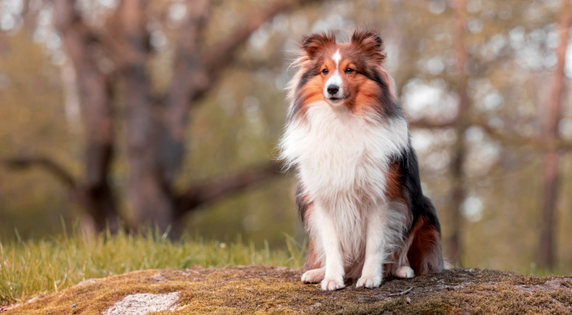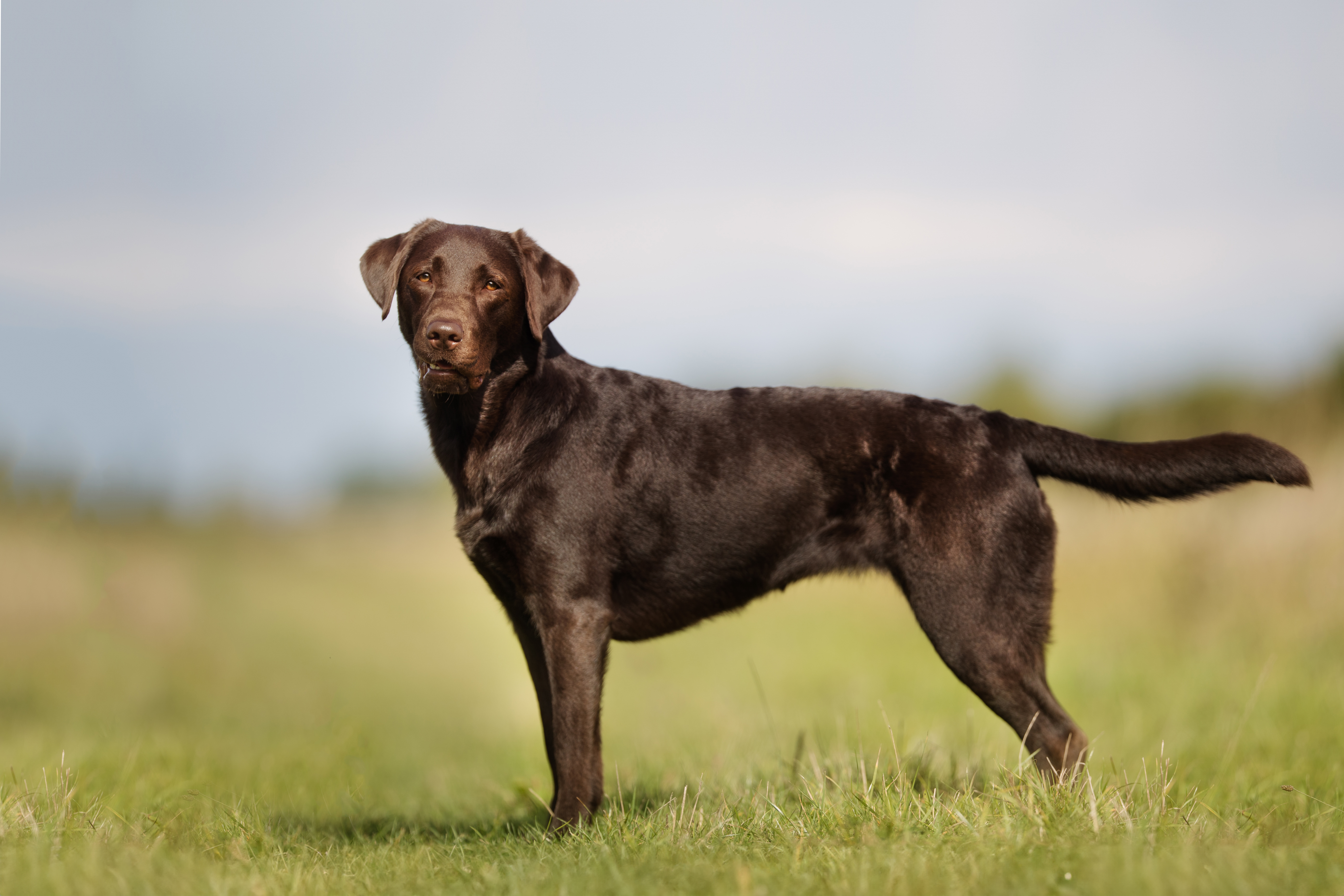
What is the best dog food?
The answer to the above question is subjective and depends on your own preference and that of your dog. We’ve made an overview of the most popular diets in every category, using our extensive range of dog foods.
The Shetland Sheepdog, or Sheltie, is a small to medium-sized, long-haired dog with a beautiful double coat and a lively, affectionate character. Originally bred on the Shetland Islands to herd sheep, this breed is known for its intelligence, agility, and loyalty. The Sheltie is highly social and forms strong bonds with its family, making it an ideal dog for both adults and children. Its eagerness to learn and enthusiasm make it perfect for active families looking for a dog with both a strong work ethic and charm.

The Sheltie originates from the rugged Shetland Islands in Scotland. This breed was originally bred to herd Shetland sheep in the island’s rough terrain. Thanks to its intelligence and strong work ethic, it was highly valued by local farmers—not only as a working dog but also as a loyal companion. Its small yet agile build made it ideal for herding in harsh weather conditions. During the 20th century, the breed was further developed through crossings with Collies, resulting in the elegant and versatile dog we know today, popular as both a working dog and a companion.
The Sheltie has a gentle and devoted nature, making it an ideal family dog. It is affectionate and loves to be close to its family, yet it also has an independent streak. Due to its high intelligence and eagerness to learn, it is easy to train, though it can sometimes be sensitive or reserved. The Sheltie is energetic and playful, but it can also be calm and relaxed indoors. Its alert and watchful nature makes it a great watchdog, but it can sometimes be vocal. With its sociable and sensitive temperament, the Sheltie thrives best in a loving home where it gets plenty of attention and mental stimulation.
The Sheltie is a small to medium-sized dog with an elegant and graceful appearance. Its double coat consists of a soft undercoat and a long, straight topcoat, in colours such as sable, tricolour, blue merle, and bi-colour. It has a long, narrow head, small ears that fold forward, and dark, almond-shaped eyes. Its slightly rectangular body, straight back, and strong legs give it a graceful yet balanced look, perfectly suited to its herding background.
The Sheltie is an active and energetic breed that requires daily exercise to stay physically and mentally healthy. It needs an average of 1 to 2 hours of activity per day, including walks, running, and playtime.
In addition, the Sheltie loves to work and enjoys activities that challenge its intelligence, such as obedience training, puzzle games, or dog sports. Due to its herding background, it enjoys having tasks to complete and working alongside its owner. A lack of exercise and mental stimulation can lead to boredom and unwanted behaviours.
The Sheltie requires regular grooming to keep its coat in good condition. Weekly brushing helps prevent tangles in its double coat, with more frequent brushing during shedding periods. Its ears and nails should be checked regularly, and teeth brushing should be part of a daily routine to maintain good dental health. Regular exercise and mental challenges are essential to keep a Sheltie happy and healthy.
The Sheltie is generally a healthy breed, but some hereditary conditions are known to affect them. Hip dysplasia is a common issue, which can cause pain and mobility problems. Eye disorders, such as Collie Eye Anomaly (CEA) and Progressive Retinal Atrophy (PRA), can lead to vision loss or blindness. Chronic kidney disease is also seen in some Shelties, and due to the MDR1 gene mutation, certain medications can be dangerous for them. Regular veterinary check-ups and genetic testing can help detect and manage these conditions early.
The Sheltie is a unique breed, but it shares similar traits with the following dogs:
Both breeds are popular as working and companion dogs.
Choosing a responsible breeder is essential when getting a Sheltie. This breed has specific health needs and a sensitive, intelligent nature, so finding a breeder who prioritises both physical and mental well-being is crucial. A good breeder will conduct genetic tests for hereditary conditions such as MDR1, hip dysplasia, and eye diseases. They will also be transparent about the parents’ health and will provide guidance to help you choose a puppy that suits your lifestyle.
A Sheltie’s price can vary depending on breeding quality, health tests, and pedigree. While a lower price may seem attractive, it could indicate poor breeding conditions or a lack of health screening, which may lead to higher vet costs in the future.
It is always recommended to choose a reputable breeder who follows the guidelines of breed associations and provides ongoing support for their puppies.
The Sheltie is a versatile dog that adapts well to different types of owners, but it has specific needs that make it best suited to a particular kind of owner. If you’re considering bringing a Sheltie into your home, it’s important to understand what qualities you need to properly care for this breed.
The Sheltie is ideal for an owner who:
Overall, the Sheltie is a fantastic choice for an owner who wants to build an active and loving bond with their dog. This breed thrives in a home where physical and mental challenges are provided, and where owners appreciate a loyal and lively companion.
The Sheltie is an intelligent and eager-to-learn breed, but due to its sensitivity and sometimes reserved nature, it requires a patient and consistent approach.
For beginners, this breed can be challenging due to the need for regular grooming, its high energy levels, and the mental stimulation it requires.
Experienced owners will find it easier to manage the Sheltie’s working drive and alertness, especially if they are familiar with training sensitive and intelligent dogs.
The Sheltie is suitable for both dedicated beginners and experienced owners, as long as they are willing to invest time in its care, training, and overall well-being.

The answer to the above question is subjective and depends on your own preference and that of your dog. We’ve made an overview of the most popular diets in every category, using our extensive range of dog foods.

This blog article discusses 10 commonly kept medium-sized dog breeds with the most important characteristics associated with these breeds. Dogs in this category have an adult weight between 10-25 kg. This is our top 10 medium dog breeds. Looking for a different breed? Check out our dog breeds page.

If you've ever owned a dog, you'll know that every dog is unique. Dogs can have breed-specific characteristics, though, like joint or coat issues. To support these specific characteristics, Royal Canin has created special nutrition that meets the needs of individual dog breeds. Read all about breed-specific dog food in this article!

Add products to view your basket
We use cookies to help us serve you better and more personally. Functional cookies ensure that the website works properly and have an analytical function. We also use technology to track your behaviour anonymously, both inside and outside our website. Personal data and cookies may be used for personalisation or advertising. Want to know more? Read our privacy policy and cookie statement here. If you choose to reject, we will only place functional and analytical cookies.
